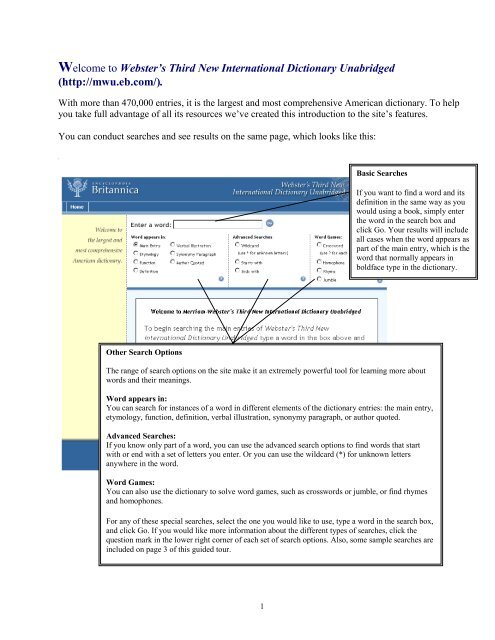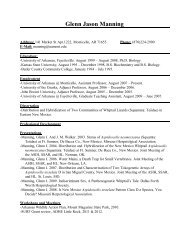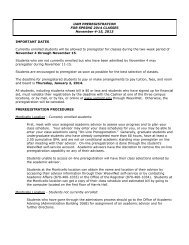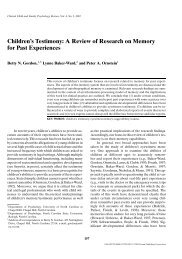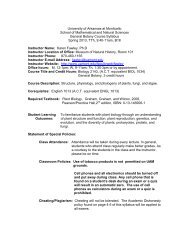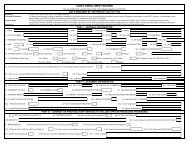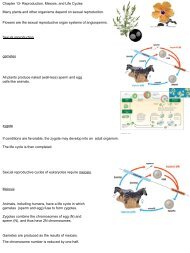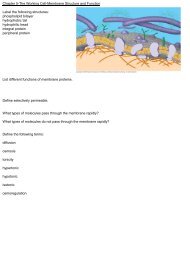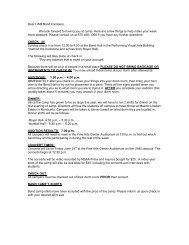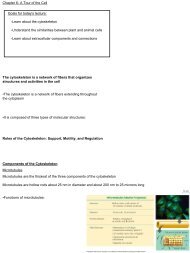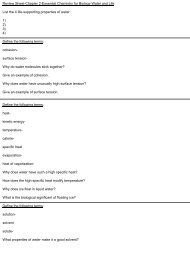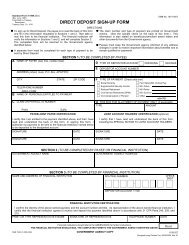Welcome to Webster's Third New International Dictionary Unabridged
Welcome to Webster's Third New International Dictionary Unabridged
Welcome to Webster's Third New International Dictionary Unabridged
- No tags were found...
Create successful ePaper yourself
Turn your PDF publications into a flip-book with our unique Google optimized e-Paper software.
<strong>Welcome</strong> <strong>to</strong> Webster’s <strong>Third</strong> <strong>New</strong> <strong>International</strong> <strong>Dictionary</strong> <strong>Unabridged</strong>(http://mwu.eb.com/).With more than 470,000 entries, it is the largest and most comprehensive American dictionary. To helpyou take full advantage of all its resources we’ve created this introduction <strong>to</strong> the site’s features.You can conduct searches and see results on the same page, which looks like this:Basic SearchesIf you want <strong>to</strong> find a word and itsdefinition in the same way as youwould using a book, simply enterthe word in the search box andclick Go. Your results will includeall cases when the word appears aspart of the main entry, which is theword that normally appears inboldface type in the dictionary.Other Search OptionsThe range of search options on the site make it an extremely powerful <strong>to</strong>ol for learning more aboutwords and their meanings.Word appears in:You can search for instances of a word in different elements of the dictionary entries: the main entry,etymology, function, definition, verbal illustration, synonymy paragraph, or author quoted.Advanced Searches:If you know only part of a word, you can use the advanced search options <strong>to</strong> find words that startwith or end with a set of letters you enter. Or you can use the wildcard (*) for unknown lettersanywhere in the word.Word Games:You can also use the dictionary <strong>to</strong> solve word games, such as crosswords or jumble, or find rhymesand homophones.For any of these special searches, select the one you would like <strong>to</strong> use, type a word in the search box,and click Go. If you would like more information about the different types of searches, click thequestion mark in the lower right corner of each set of search options. Also, some sample searches areincluded on page 3 of this guided <strong>to</strong>ur.1
ResultsAfter you enter a word and click Go, the page will display the results in the bot<strong>to</strong>m portion.More InformationMatches and <strong>Dictionary</strong> EntriesSearch results display in the lower portion of the page. Allmatches appear in a menu on the left. The complete entry for thefirst word in the list will au<strong>to</strong>matically appear on the right. Todisplay another dictionary entry, highlight a word in the list andclick Go.All elements of the entry—the word, its pronunciation, function,etymology, and definitions—will display on the right. You mayneed <strong>to</strong> use your browser’s scroll bar <strong>to</strong> see the complete entry.You can use the links in theupper right corner <strong>to</strong> learnmore. Click ThesaurusSearch <strong>to</strong> find synonymsand an<strong>to</strong>nyms or clickPronunciation Key for aguide <strong>to</strong> the phoneticsymbols used in thedictionary. You can alsoformat the entry forprinting or e-mail it <strong>to</strong>yourself or a friend.2
Search OptionsThe site offers several powerful ways <strong>to</strong> search.Sample SearchesTrying a few sample searches is the best way<strong>to</strong> understand all the search options. Look foryour search term in red.For example, <strong>to</strong> learn about the his<strong>to</strong>ry of aword and find other related words, selectEtymology under Word appears in:. To seeexamples, try searching on “culture” or“logos.”To see examples of how a word is used,select Verbal Illustration, also under Wordappears in. Try searching for “judicious” or“nefarious” <strong>to</strong> see examples.More SamplesHere are some more sample searches you can tryas you learn <strong>to</strong> use the site’s features:Word appears inFunction: trademark, prepositionDefinition: robot, dinosaurSynonymy paragraph: intrepid, deterAuthor quoted: Shakespeare, LincolnAdvanced SearchWildcard: har*en, ch*izeStarts with: philo, phonoEnds with: tract, ttlingWord GamesCrossword: r?m?ss, ?ea?erHomophone: read, hereRhyme: rose, beautyJumble: dictionary, dlehur3
Choosing a Search OptionWith so many choices, it can be difficult <strong>to</strong> determine when <strong>to</strong> use each option. The tables below offersome guidelines. You can also find more detailed information on the site by clicking on the questionmarks that display below the search options.Word appears in:Each of the searches in this category allows you <strong>to</strong> find words or phrases that appear within the differentelements of a dictionary entry. The table below briefly summarizes when <strong>to</strong> use each of the differenttypes of searches.Search TypeMain entryEtymologyFunctionDefinitionVerbal illustrationSynonymy paragraphAuthor quotedUse it <strong>to</strong> findThe definition of a word or phrase.Words that derive from a particular language or wordroot.Words that have a certain function (e.g., trademark) orpart of speech.Entries whose definition includes a specific word.Examples of a word used in context.Paragraphs describing differences among synonyms.Quotes by a specific author.Advanced Searches:The searches in this category will be helpful if you do not know all the characters in a word or if you areuncertain of the spelling. All searches will be of the main entry. The table below briefly summarizeswhen <strong>to</strong> use each of the different types of searches.Search TypeStarts withEnds withWildcardUse it <strong>to</strong> findWords for which you know only the first character(s).Words for which you know only the last character(s).Words that share groups of letters in common or thatyou know some, but not all, letters.Word Games:The words and letters are the sources of a range of enjoyable activities, from poetry <strong>to</strong> puzzles. You canuse these searches <strong>to</strong> find different relationships between words or the answer <strong>to</strong> a tricky puzzle. Thetable below briefly summarizes when <strong>to</strong> use each of the different types of searches.Search TypeHomophoneRhymeJumbleCrosswordUse it <strong>to</strong> findWords that sound alike but are spelled differently.Words that rhyme with a given word.Words that can be made by shuffling a given group ofletters.Words where you know some letters but not others.4


